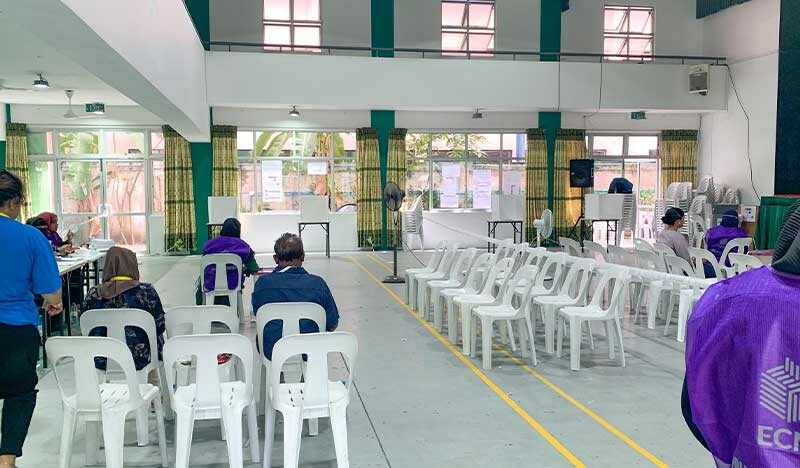HRCM’s Report Flags Electoral System Reliance on Permanent Address

Photo: MV+
The Human Rights Commission of the Maldives (HRCM) has released its Pre-Election Monitoring Report for the 2024 Parliamentary Elections, highlighting the current electoral system’s reliance on permanent address for representation and a need to conduct a study to assess the current system for its effectiveness and explore reforms.
The report delves into crucial aspects of the electoral process, particularly focusing on the participation of voters in electing representatives.
One of the key points highlighted in the report is the issue of constituency representation. It emphasises the importance of allowing voters to elect representatives from the constituency where they currently reside, rather than solely basing representation on their permanent address. This is particularly significant for long-term residents who may have relocated within the country but still wish to participate in the electoral process.
According to the report, voters often align their choices with specific party manifestos and ideologies. However, concerns have been raised regarding the potential consequences for elected members who may wish to switch parties. A significant portion of survey respondents (73%) expressed fear of losing their seats if they were to switch parties, indicating a lack of flexibility within the current political landscape.
Furthermore, the report sheds light on the demographic makeup of the Maldives, with a substantial portion of the population having migrated at some point in their lives. This raises questions about the rights of individuals to participate in the affairs of the constituency where they currently reside, rather than solely focusing on their place of origin.
The issue of constituency representation has sparked debates within society, with 60% of survey respondents advocating for voting rights to be based on current residency rather than permanent address. This sentiment is particularly strong among new voters, with 66% supporting the idea of systemic change.
The report suggests that the lack of discourse on this topic, coupled with low youth participation in politics, may contribute to a lack of awareness among voters regarding their rights and options within the electoral process.
As discussions surrounding electoral reform continue, the HRCM’s Pre-Election Monitoring Report serves as a crucial resource for policymakers and stakeholders alike, highlighting the need for a comprehensive review of the current electoral framework to ensure fair and inclusive representation for all citizens.











